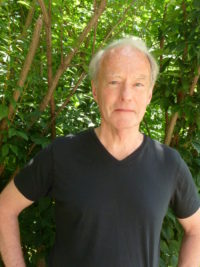Starting with Man's Search for Himself in the 1950s and continuing until his death in 1994, May repeatedly explored the reasons why there was an increasing loss of a genuine sense of self resulting in widespread identity confusion and a growing apathy linked to a lack of compassion. He clearly described the anxiety and loneliness that ate at so many people who "not only do not know what they want; they often do not have any clear idea of what they feel." Feeling only empty and bored and lacking a real sense of self, they conform to hollow cultural values and mores while consuming the goods and services that a consumer culture offers to fill them up. Consuming, they are consumed. This powerless dependency, rooted in a lack of self-identity and the need to be liked, leads to painful anxiety, despair, and powerlessness resulting in acquiescence to social ills. This is today's selfie/media culture in a nutshell, what Christopher Lasch once called the culture of narcissism.
I obviously couldn't ask him when we talked, but I can imagine his response to today's trends of people marrying robots, selfie photos, Facebook, avatars and second lives in cyberspace, the growth of pornography, sex with machines, the sexual saturation of culture, electronic warfare, drone killings, etc. - a bemused laugh and a comment suggesting the tragedy of it all. In Love and Will he wrote that "the contemporary paradoxes in sex and love have one thing in common, namely the banalization of sex and love. By anesthetizing feeling in order to perform better, by employing sex as a tool to prove prowess and identity, by using sensuality to hide sensitivity, we have emasculated sex and left it vapid and empty. The banalization of sex is well-aided and abetted by our mass communication ". They oversimplify love and sex, treating the topic like a combination and learning to play tennis and buying life insurance. In this process, we have robbed sex of its power by sidestepping eros (the creative life force); and we have ended by dehumanizing both." He predicted that this technical approach to sex would lead to sex obsessions, lovelessness, and increased sexual impotence. And here we are -- Viagra, big butts, enhanced this and enhanced that -- all in the service of sexual satisfaction produced by the cult of technique and devoid of passion.
"Shooting" yourself with a phone camera, sex with a robot or a machine, and killing with drones -- this is life today. We have become separated from our humanity by our machines. We worship our images and in so doing can't grasp the death and destruction caused by our drones and foreign wars. Others don't exist in this solipsistic culture. May saw it coming and explained why. He saw that violence was yoked to a lack of compassion and that this lack of compassion (to suffer with others) was connected to our flight from death and emotions we consider negative. He saw this form of thinking as an effort to control life that was self-defeating and could only lead to more violence. "Paradoxical thinking," he told me, "seems to me to be the only kind that gets to the root of human existence. I don't think analytical thinking does. It leaves out too much. You remember Heraclitus. I think he's quite right that we always think in terms of positive/negative. We think like electricity, thus both the negative and positive pole and the oscillation back and forth, and human thinking is a play with opposites."
Since he has written so much about the breakdown of our traditional myths and symbols, I asked him if there was any one word or symbol that he thought encompassed the body of his work.
After a long pause, he said, "No, I think that's impossible for any person who writes to say. I think you could say it much better than I could because we're so much in it. All I know is that I think paradoxically." And without pause or any word from me, he continued. "Well, if you wanted to push me, I would say that what I think is the basic, well, the basic symbol of my life, I would say that it is compassion. That's what matters most to me. I grew up in a rather difficult family, quite difficult. I did not have a good childhood. I was quite lonely as a child. And I did suffer a good deal."
Out of this childhood pain, he learned early to be a therapist for his family, and felt that these experiences gave him an acute sensitivity to others' feelings. In his memoir Paulus, about his friend, Paul Tillich, the great Protestant theologian, he wrote words that could equally apply to himself: "Someone has to mediate, to make a connection through his own life between opposites." For out of his wounds, May has created a powerful body of writings, and out of a torn self, a paradox of wholeness.
For us today, in the era of apathy, depression, and indifference to the suffering and deaths of "others" everywhere, May's work begs to be resurrected. He urges us to care again, and to let our care and compassion lead us to act to stop the violence that we are taught to ignore. Don't look away, I can hear him say, face fully all dimensions of the human experience, the negative and positive; remember that despair and joy are linked to the possibility of freedom; reject the cult of death that hides within technological obsessiveness; and remember that love brings the intimation of our mortality but also our greatest joys and passions.
And if he were still sitting across from me -- and you -- today, he'd probably also say with a grin, "Above all, don't marry a robot."
(Note: You can view every article as one long page if you sign up as an Advocate Member, or higher).





